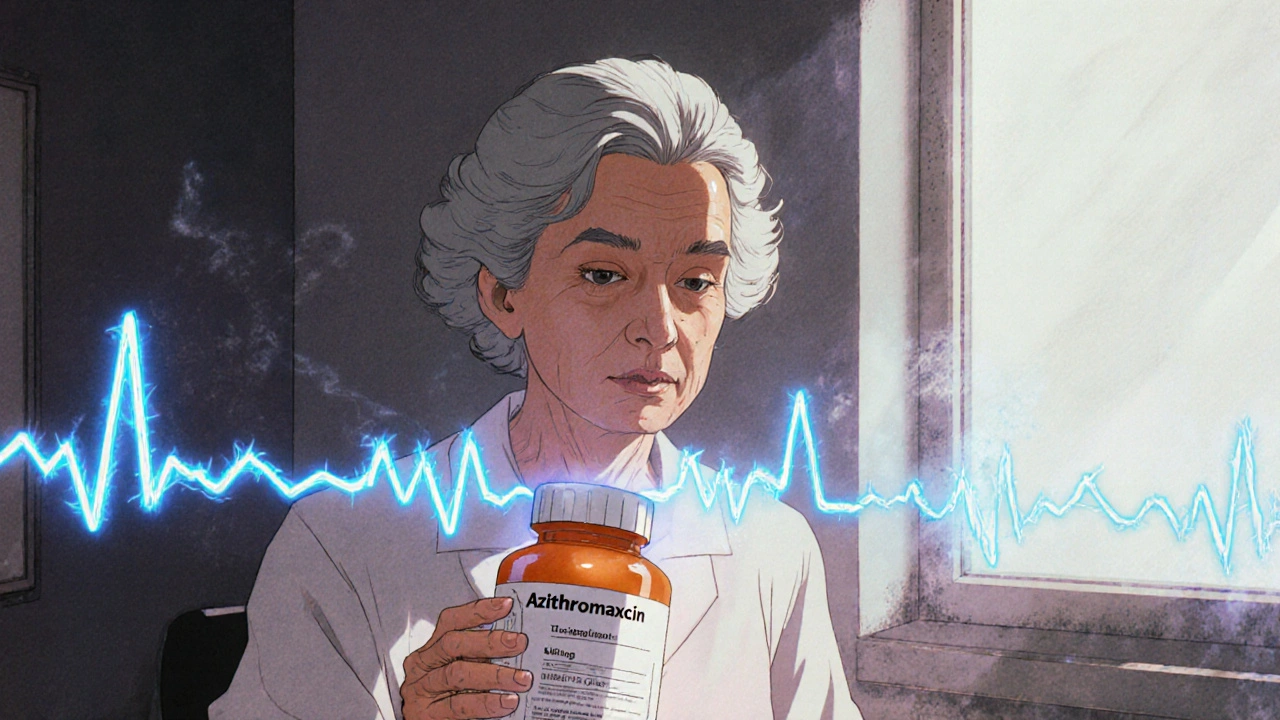When your heart skips, races, or flutters in a way that feels off, you might be dealing with arrhythmia risk, the chance that your heart’s electrical system will fire irregularly, leading to potentially dangerous heart rhythms. Also known as heart rhythm disorder, it’s not always obvious—some people feel nothing, while others collapse without warning. This isn’t just about aging or genetics. Many everyday medications, from antibiotics to antidepressants, can quietly increase your arrhythmia risk by messing with your heart’s electrical signals.
One major player in this is QT prolongation, a measurable delay in the heart’s recovery phase after each beat, often caused by drugs like certain antibiotics, antipsychotics, or anti-nausea meds. It’s invisible on a normal checkup but shows up on an ECG—and if it gets too long, it can trigger a life-threatening rhythm called torsades de pointes. Then there’s electrolyte imbalance, a common but overlooked trigger, especially when you’re on diuretics, have poor nutrition, or drink too much alcohol. Low potassium or magnesium doesn’t just make you tired—it can turn a stable heart into a ticking time bomb.
You won’t find arrhythmia risk listed on every pill bottle, but it’s hidden in the fine print of dozens of drugs you might be taking. People with existing heart disease, kidney problems, or those on multiple medications are at higher risk, but even healthy young adults can be affected—especially if they’re mixing pills with alcohol or stimulants. The good news? You don’t need a doctor to spot the early signs. If you’ve ever felt your heart pound out of nowhere after taking a new med, or if you get dizzy when standing up fast, those aren’t just "odd sensations." They’re red flags.
What follows isn’t a list of scary stories. It’s a practical collection of real-world guides that show you exactly which medications carry hidden rhythm risks, how to spot warning signs before it’s too late, and what alternatives exist that won’t put your heart in danger. You’ll find insights on how alcohol affects blood thinners, why certain antibiotics can trigger irregular beats, and how even common painkillers might play a role. These aren’t theoretical concerns—they’re based on real patient experiences and clinical data. Whether you’re managing a chronic condition, taking multiple prescriptions, or just want to know what’s really in your medicine cabinet, this collection gives you the clear, no-fluff facts you need to protect your heart.

Macrolide antibiotics like azithromycin and clarithromycin can prolong the QT interval and trigger life-threatening heart rhythms in high-risk patients. Learn who's most vulnerable and how to avoid dangerous interactions.